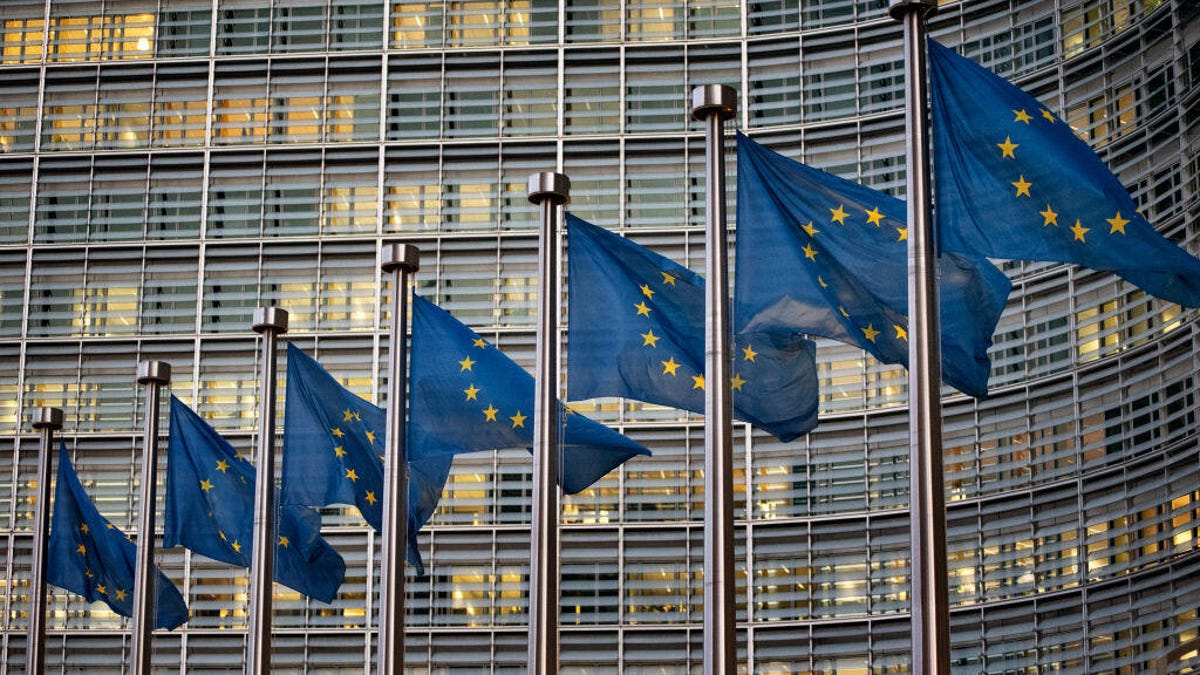Europe bids for global digital leadership as pressure mounts from US and China
The EU's new digital strategy outlines its plans to lead in AI, boost data-driven companies and establish its sovereignty in a brave new digital world.

Europe forges ahead with its digital plans.
The EU on Wednesday unveiled a landmark digital strategy that it hopes will establish Europe as a global tech leader over the next decade and beyond.
In the strategy, Europe outlined plans for boosting its "fair and competitive" economy, developing technology that's beneficial to European citizens and underpinning an open, democratic society. Central to the plan is establishing a single European data market and shaping the bloc's leadership in the field of artificial intellligence.
The strategy doesn't equal new legislation or rules, but rather is designed to be a framework around which the EU will shape the development of legislation in the coming years.
Under future rules, it's hoped that European digital companies will be able to thrive within the bloc, as well as on the global stage, ushering in a new era of self-reliance. Meanwhile companies from outside of Europe will continue to be welcomed in, providing they play by the EU's rules.
While announcing the strategy, Commission President Ursula von der Leyen noted how the strategy draws from Europe's long history of technological success and innovation, strong industry, and appreciation of individual rights and shared values. She described it as "connecting all these dots and putting it into a concept."
"We want the digital transformation to power our economy, and we want to find European solutions in the digital age," said von der Leyen during a press conference in Brussels.
The digital strategy might be for Europe, but just as with the privacy rules -- the GDPR -- that the bloc introduced in 2018, we can expect Europe's approach to help shape the global debate on digital businesses, including in the US. It's too early to say whether European standards on digital issues will become global standards, but the announcement of the strategy is a way for the EU to lead the conversation.
Speaking at the press conference, European Competition Commissioner Margrethe Vestager stated the importance of Europe doing things in its own way and upholding its values when deciding how to govern new technologies. "My pledge is not to make Europe more like China or more like the US, my pledge is to make Europe more like herself," she said.
AI and data
Along with the wider strategy, the EU on Wednesday also published two white papers on AI and data.
One of the commonly held beliefs as to why Europe hasn't produced tech giants able to compete with the likes of Facebook, Google and Amazon is that it has lacked the ability to share data across the bloc. The white paper on data proposes a shared data space that would allow European data-driven businesses to flourish.
"Our society is generating a huge wave of industrial and public data, which will transform the way we produce, consume and live," said Commissioner for the Internal Market Thierry Breton in a statement. "I want European businesses and our many SMEs to access this data and create value for Europeans -- including by developing Artificial Intelligence applications."
The EU already views itself as a global leader in AI, and it's determined to maintain and extend that lead by supporting researchers and attracting more talent.
The white paper also emphasizes the importance of creating trust in AI systems by identifying high-risk AI (in health or policing, for example) and installing adequate checks and balances, while not burdening systems that don't pose the same risk.
The use of unbiased data to train algorithms gets a prominent place in the white paper. It stipulates that authorities should be able to test and certify the data used by algorithms in the same way they check cosmetics, cars or toys.
As part of its plan for AI, the EU also addressed the use of facial recognition technology. Right now, EU rules governing the use of facial recognition stipulate that it should be prohibited unless used in exceptional, duly justified and proportionate cases, subject to safeguards and based on EU or national law. But now the Commission plans to launch "a broad debate" about whether there should be exceptions to these rules.
The white papers are now open for consultation until mid-May, and later this year the Commission will present the Digital Services Act and a European Democracy Action Plan to other EU institutions.

